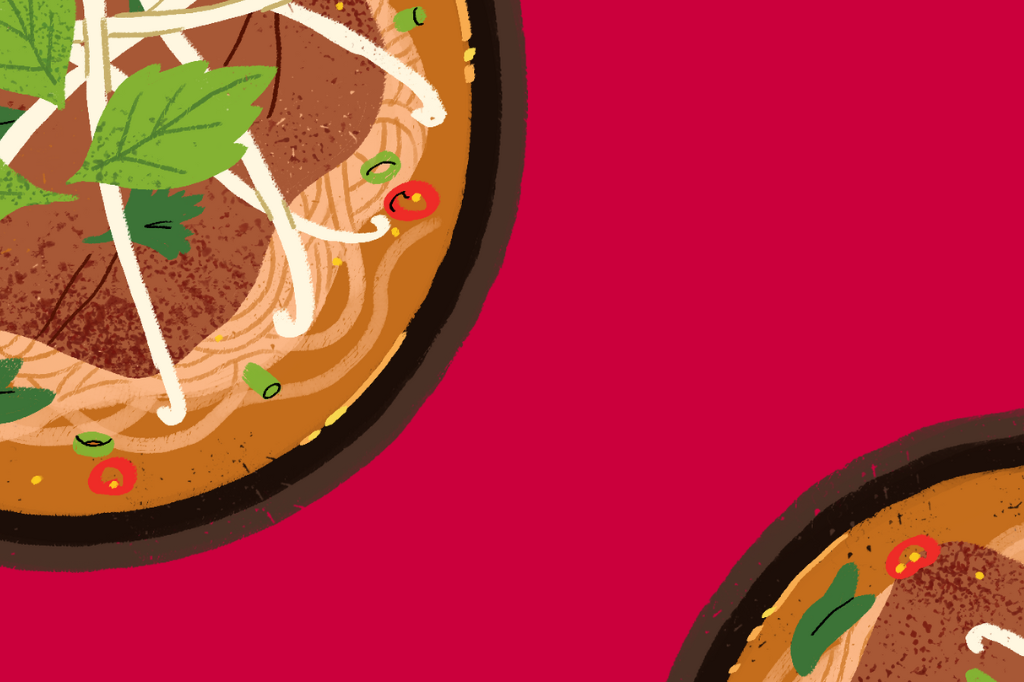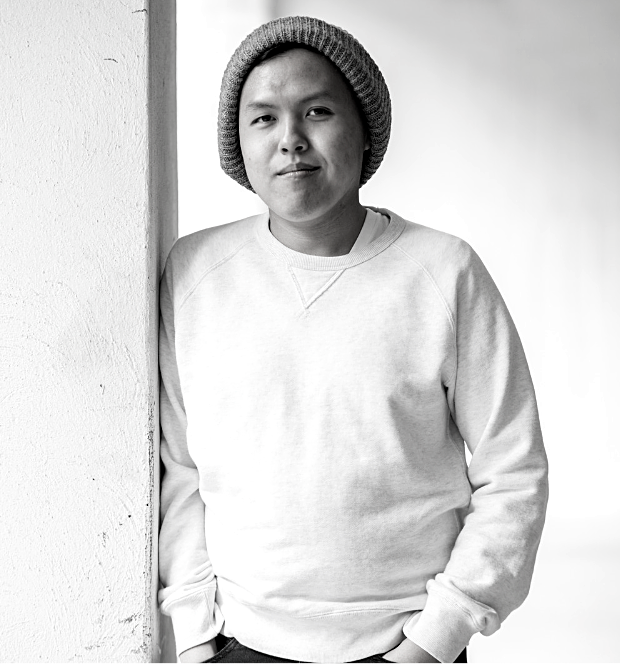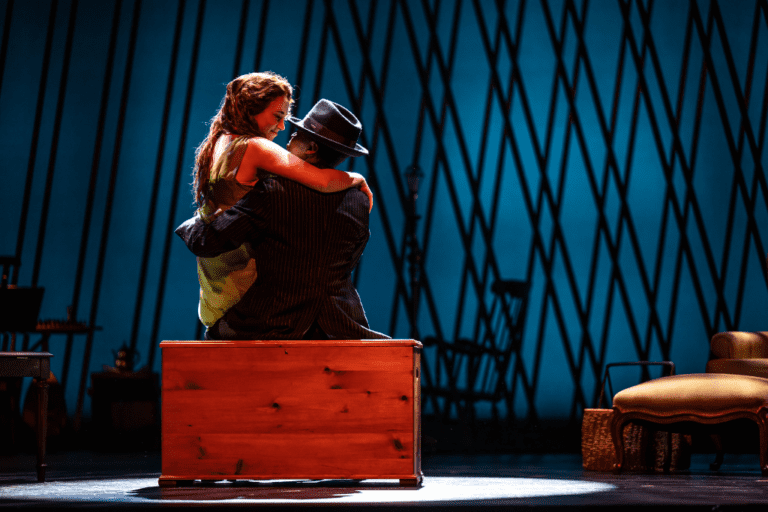A Perfect Pronunciation of Pho (in which you probably won’t actually learn how to pronounce pho)
I had the good fortune to have the script of my musical A Perfect Bowl of Pho published by Playwrights Canada Press in November 2021, and it contains precisely one explanation of how to pronounce a word in the production notes:
“Accents and pronunciation choices mark generational differences between characters. Words rendered with diacritics (e.g. phở) should be pronounced in a Vietnamese way, but without diacritics they become casual English readings (e.g. pho is generally pronounced foh), like Nam almost always says, even though he knows better.”
To be clear, I’m a filthy “foh”-sayer most of the time.
This doesn’t come from some delusion that it’s somehow “accurate.” I’m actually hoping that by the end of this, you will also come to question what “accuracy” is in this context and why we’re so beholden to it. But unless you’re portraying me on stage, by no means do you need to follow me down the “foh” path: I don’t care how you personally pronounce pho. Or rather, I do care in a way that would inspire me to write this article and submit it to Intermission Magazine (weeks late, a bad habit kept from undergrad), but not in the way where I’d demand an apology and correction if you said something mildly “wrong” in front of me. This often shocks people who assume I’d be particular about this sort of thing!
Frankly, there are so many actually interesting things about the food which we get into in the musical, and striving to standardize its pronunciation in our English-speaking mouths is easily one of the least interesting ways to engage. It is worth precisely two punchlines in A Perfect Bowl of Pho and no more. (There had been a third, and it was the first thing to go when we made cuts for length in the current Toronto Fringe production.) Thus, our focus here will not be pinpointing a perfect pronunciation of “pho,” but considering the nature of the debate itself.
Let’s first spiel a bit about the etymology of pho, which remains a bit murky to this day. One thing we do have a pretty good handle on is that the commonly cited root of “feu,” from the French for fire (as in the French dish pot-au-feu), is probably wrong and doesn’t make nearly as much sense as 粉 (“fun”) from Chinese for rice noodle (as in the Cantonese dish chow fun). Come on! The noodle was right there dangling in front of us, and so was the much-longer-than-France’s history of Chinese domination over Vietnam. In Vietnamese itself, noodles are understood to be the defining characteristic of phở, without which it is just another súp. (You’ll be glad to know súp IS a loan word from the French soupe.)
Now, even if you’ve somehow gone your entire life without hearing the word “pho,” just those two possible etymologies I just gave would point you firmly toward some kind of “uh,” for that pesky vowel sound which haunts the Western foodie. If every non-Vietnamese English speaker can agree on one thing about the pronunciation of pho, it’s that their very first instinct was to read it with an “oh” sound, which they then quickly understood to be wrong. What vowel sound you replace it with is almost irrelevant to the task of appearing worldly to your peers; what matters is that you don’t say “foh.” From there, go crazy, I guess. Fah? Fuh? Feu? Fur?
Given that my name is essentially “Vietnam Hard-Vietnamese-Surname,” surely I’m bestowed with inherent worldliness and would know better than to say “foh,” lest it betray me as being some “faux” Viet?
Yet I do say it that way, and when I sprinkle it in conversation there’s often an explanation demanded of me. The short answer I give if I want a swift end to the conversation is “because I’m a colonized piece of shit,” and the longer one is that I grew up with a diverse bunch of kids in the 2000s and 2010s in Mississauga. Most of my adolescent friends were middle-class Asian Canadians of various ethnicities, mostly not Vietnamese, and though our one common language was English, we’d play Korean schoolyard games, watch Japanese anime, regurgitate punchlines we’d learned from YouTube videos of that one Indian comedian, drink Taiwanese bubble tea, and yes, eat Vietnamese pho after school. In this pan-Asian milieu, everyone ate Vietnamese even if they didn’t speak it at home, and so my non-Viet peers learned the name of the food from the restaurant sign and thus pronounced it following the same first instinct everyone has. And importantly, they did this in a time just before pho had reached a point of such cultural saturation that they would immediately be socially shamed for doing so, before it was a kind of meme to clown an uneducated rube for saying “pho” the obvious way. To convey the idea of that beef noodle soup, “foh” was an acceptable thing to say aloud. Granted, it was said with a touch of irony by the suburban Viet kids who did know better, but “oll korrect” can confirm that even semi-ironic terms can lodge themselves deep in our tongues.
Can we contend that the saying of “foh” facilitates the task of communicating the noodle soup to you just fine, which is precisely what a word is supposed to do?
I grant you that “phở” has a fairly standard pronunciation in Vietnamese (with minor variations going north to south), and you’ll find a dozen recordings of people saying it online; you don’t need me to find those. Might we consider “pho,” though, the new English word without the “ở”, to still be unsettled for now? Do the well-meaning foodies who force out some variation on “fah” really think they’re suddenly speaking Vietnamese for an instant as they do so, not really knowing what the vowel is and also ignoring the diacritic? Loan words exist all over English and indeed all languages, but intrinsically we understand that we don’t humiliate each other for not reading “biscuit” or “omelette” in the French manner. Isn’t “foh” just another regional pronunciation, the one that inevitably pops up wherever Vietnamese diaspora restaurants exist in the Anglosphere? Is this not as legitimate a linguistic drift as the shift of 薄餅 (“popiah”) in the Chinese diaspora to “bò bía” in Vietnam and “lumpia” in the Philippines, or must those be perversions too? Is it only European sounds that we implicitly consider wrongful contaminations of Asian words? And is this because of a justified reaction against Western domination over Asia in the last few centuries, or is it because that domination still informs our mindset so deeply that we replicate its vision of Asia (and Asians, and their languages) as a unchanging, perpetually foreign Other, even though phở plainly didn’t exist 150 years ago? Or instead of having that fight, can we contend that the saying of “foh” facilitates the task of communicating the noodle soup to you just fine, which is precisely what a word is supposed to do?
If we can, I offer this corollary: heightened as theatrical speech may be, it’s intended to communicate character to you, and sometimes the most apt thing is for a character to say something “weirdly.” I am not my grandfather, who was a Vietnamese poet writing in Vietnamese for Vietnamese people in Canada who shared his circumstances; I’m an English-language playwright dealing in my own heritage, the bizarre pidgin culture of young extremely-online GTA Asians in the early 21st century, only one sliver of which is inherited from Vietnam. (And mind you, the Sauga Asians are different still in small ways from the Toronto, Brampton, and Oakville Asians around them.) I say “foh,” and when I make characters quite like me, they also say “foh.” If you insist we’re “wrong” to do so, I still invite you to think about the journey we carved to being wrong.
But maybe you just can’t handle all this Asian talk. There’s an above-average chance that you, dear reader, are a good liberal Canadian theatregoer of the white persuasion; you feel conflicted about an argument suggesting you can relax around interacting with something nominally foreign when you’ve been taught well not to do that. Let’s use a different example from the North American theatre tradition, then: you would know that someone directing A Streetcar Named Desire hasn’t understood the assignment if Blanche DuBois entered in the very first scene and declared that her childhood home was “Belle Rêve”, uttered in pristine Parisian French. That’s just not who she is, where she’s from, or what she sounds like, in her troubled life as a relic of an older American South. She does actually speak a handful of whole French sentences later in the play, but when she speaks of her lost home, it is always the way she learned it at home, and it is always “Bell Reev,” in all its grammatically incorrect, Anglo-mangled glory.
My characters from Vietnam do tend to say “phở” in Vietnamese. To spoil A Perfect Bowl of Pho just a little, though, the very last song is from the perspective of a second-generation Vietnamese Canadian, and when she speaks of home, it is of “foh.” Of course it is. That’s what’s accurate to her circumstances as a character.
And as a nice bonus?
It works way better for the rhyme scheme.










nice information!
Universitas Telkom